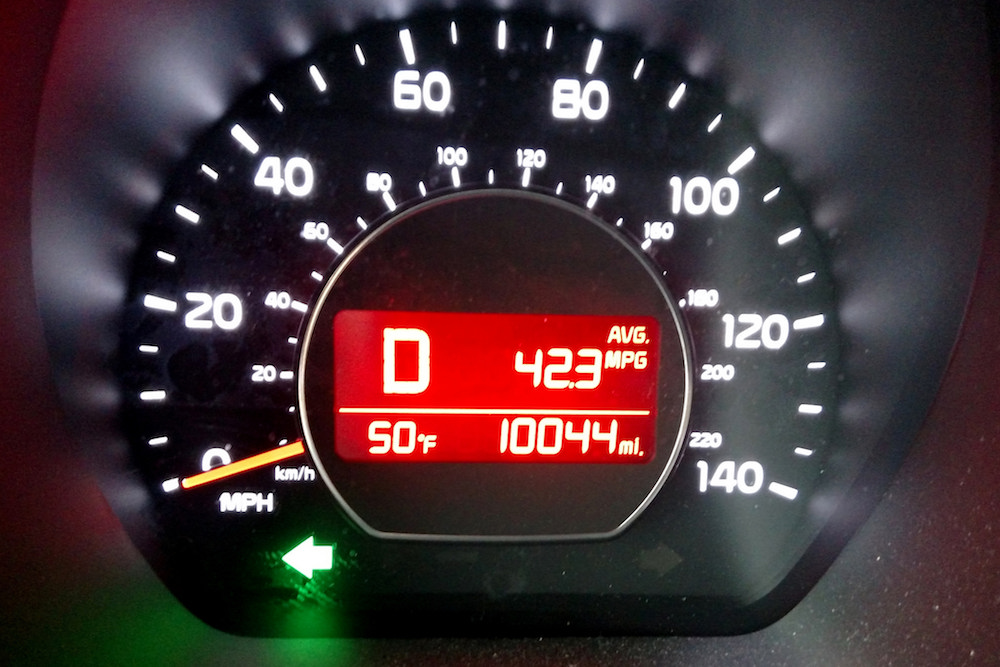There’s a major sector of the automobile industry that is unwavering in its support of strong clean car standards: auto parts manufacturers.
Carmakers, through the powerful Auto Alliance trade group, have flip-flopped on fuel economy and emissions targets for cars and light duty trucks — claiming they aren’t for rollbacks even after lobbying for them. On the other hand, auto parts suppliers have consistently argued on behalf of strong national standards, going against the direction currently pursued by the Trump administration.
Auto Suppliers Tell Trump ‘Don’t Go Backwards’
The Obama-era clean car standards create jobs and and keep the American auto industry competitive globally, the partsmakers argue.
“Do not slow down the pace on CAFE [Corporate Average Fuel Economy] standards,” said James Verrier, president and CEO of Borg Warner, a major auto equipment manufacturer, back in February 2017. “We’ve come a long way as an industry and we need to keep going forward. Don’t go backwards and don’t slow down.”
At the time of Verrier’s comments, President Donald Trump had just taken office and was threatening to roll back CAFE and emissions standards, and 18 automakers were sending the White House a letter asking for him to ease back Obama’s requirements.
Since those first weeks of the Trump administration, car companies continued to lobby on behalf of weakening standards, even resorting to outright climate denial.
Then in April 2018, the two agencies responsible for auto standards — the National Highway Traffic Safety Administration (NHTSA) and the Environmental Protection Agency (EPA) — both claimed that their internal reviews found the Obama-era standards to be too strict, and that the agencies would revise standards for model years 2022-2025.
Later in the month, a joint EPA/NHTSA plan was leaked, laying out the administration’s goal of halting increases in CAFE standards after model year 2021, and to circumvent California’s authority under the Clean Air Act to set its own greenhouse gas emissions standards for personal vehicles.
Car companies and the Auto Alliance acted surprised and claimed they didn’t want such draconian cuts to the clean car standards. (“We are not asking the administration for a rollback,” pleaded Bill Ford, chairman of Ford Motor Company.)
Parts suppliers, meanwhile, maintained their consistent position that strong CAFE and emissions standards are good for business, good for the economy, and good for American competitiveness.
Weakening Clean Car Standards Threatens Jobs
In March, a group of parts and equipment manufacturers joined forces to form the Automotive Technology Leadership Group, with a goal of advocating for continuing current fuel economy standards and reducing emissions. Members of the new alliance included the Motor & Equipment Manufacturers Association (MEMA), the Manufacturers of Emission Controls Association (MECA), the Aluminum Association, and the Advanced Engines System Institute.
“We … believe it is in the nation’s best interest for the U.S. to continue leading in the development and manufacture of the cleanest and most efficient vehicles in the world,” the Leadership Group wrote in its “Statement of Principles.” “The innovation brought on by competition and our national performance standards has created hundreds of thousands of jobs in this country and significant market opportunities for U.S. companies abroad,”
Laurie Holmes, MEMA’s senior director of environmental policy, echoed the sentiment in a statement, saying, “MEMA is aware that minor tweaks and adjustments are expected. However, major changes to the program would cause significant ramifications to the industry’s investments and jobs.”
The number of jobs impacted are significant. According to a 2017 report by the BlueGreen Alliance, auto parts manufacturers and suppliers employ more than 288,000 workers in 1,200 locations in 48 states. Michigan is far from the only state impacted by these clean car policies.
A recent survey by CALSTART, an automotive technology industry group, provided even more evidence of how automotive suppliers perceive fuel economy standards as critical. A full 80 percent of respondents, all of whom work for parts and equipment manufacturers, said that they want the current standards to be maintained or strengthened. Even more — 84 percent — claimed that the existing standards through 2025 encourage job growth at their companies.
“Automotive suppliers have benefitted from strong fuel economy standards,” said John Boesel, president of CALSTART. “Our survey shows that more suppliers are seeing the 2025 fuel economy standards as good for jobs and good for investment. The growth these companies are enjoying is at risk if the 2025 standards are rolled back. If there is one thing these companies need to thrive, it’s consistent, long-term targets.”
It is unclear when the EPA and NHTSA will formally announce the next steps in their plans for automotive standards.
The agencies are in ongoing talks with carmakers and the state of California — talks that will either lead to a new national program or a long legal clash between the Trump administration and California and a dozen other states.
Main image: A high average fuel efficiency for a vehicle. Credit: Wil C. Fry, CC BY–NC–ND 2.0
Subscribe to our newsletter
Stay up to date with DeSmog news and alerts







